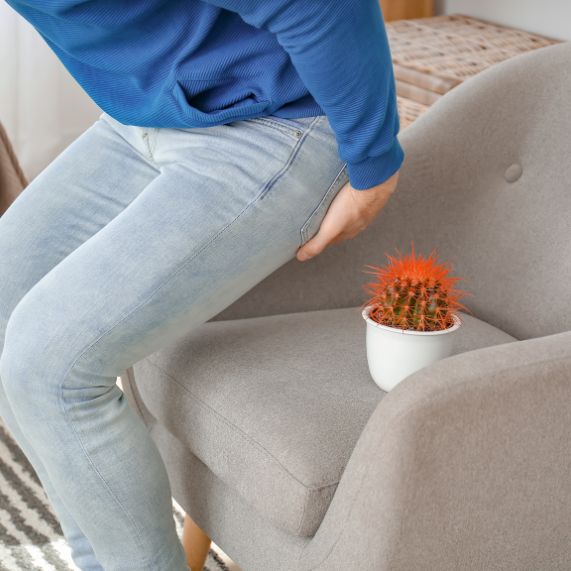One of the very Common causes of an anal fissure include constipation and straining or passing hard or large stools during a bowel movement.
Meet Dr Viswanath S for a safe and effective treatment of Anal Fissure in HSR Layout and Sarjapur Road. He is having 20+ Years of Experience in this field.
Meet Dr Viswanath S for a safe and effective treatment of Anal Fissure in HSR Layout and Sarjapur Road. He is having 20+ Years of Experience in this field.

What is Anal Fissure?
Anal Fissure is a longitudinal tear in the anus lower end. It is the most painful condition affecting the region of anal. It is commonly suspected in young patients.
What are the symptoms of Anal Fissure?
Symptoms of an anal fissure are:● Pain during, and even hours after, movement of bowel
● Constipation
● Blood on the stool outside surface
● Blood on tissue of toilet or wipes
● A seen crack or tear in the anus or anal canal
● Painful burning and itching
● Discomfort when urinating, frequent urination, or urination inability
● Foul-smelling discharge
What is the main cause of Anal Fissure
Some common causes of anal fissures are:- Large passing or hard stools.
- Constipation and straining during movements of bowel.
- Long-lasting diarrhea.
- Anal intercourse.
- Childbirth.
- Crohn's disease
- Anal cancer.
- HIV.
- Tuberculosis.
- Failure to heal.
- Recurrence.
- A tear that extends to surrounding muscles.
- Eating high-fiber foods
- Drinking plenty of fluids
- Regular exercise to keep from having to strain during bowel movements.
Less common causes of anal fissures are:
What are the possible issues of Anal Fissures?
Possible issues of an anal fissure may include:How is Anal Fissures examined?
Usually, your healthcare provider can examine an anal fissure by visual inspection of the anus or by gentle exam with the tip of the finger.
What will happen if Anal Fissures is not treated?
If a Fissure not treated, a people will have constant pain after passing stools
How can I decrease my risk of getting Anal Fissures?
You may be able to reduce an anal fissure by taking steps to prevent constipation or diarrhea.When should I see my doctor for Anal Fissure?
● Severe burning and pain during and after stool passing● Severe constipation blood drop or fresh blood streak during defecation.
● Sentinel (piles)
● Itching
● Hard stool (pellet-like)
What is the best treatment recommended for Anal Fissures?
The aim of anal fissure treatment is to reduce the pressure on the anal canal by making stools soft, and to reduce discomfort and bleeding. Conservative treatments are tried firstly and include one or more of the following:● Preventing constipation through the stool softeners use, drinking plenty of fluids while avoiding caffeine-containing products (which cause dehydration), and dietary adjustments (increase in intake of high fiber foods and fiber supplements);
● Warm bath soaking (also called a sitz bath), 10 to 20 minutes several times a day, to help relax the anal muscles;
● Anorectal cleansing area more gently;
● Avoid straining or prolonged sitting on the toilet;
● Use of petroleum jelly to help lubricate the area of anorectal.
● Topical anesthetic creams
● nifedipine or diltiazem, creams
Surgery
● Lateral internal sphincterotomy (LIS). LaserWhy Choose Advanced Laser Fissure Surgery in Bangalore
Laser surgery is the latest and most Advanced technique used in reputed hospitals. Laser surgery is a well recognised painless method of surgery.
Why Laser Surgery?
● No cuts and no stitches● Painless surgery
● Fast recovery
● No blood loss
● No chance of infection
● Discharge in one day
● Quick relief from pain
● Permanent Solution.
| With Laser treatment | Old Traditional Surgery | |
|---|---|---|
| Minimally Invasive |  |
 |
| Local Anesthesia |  |
 |
| Same-day discharge |  |
 |
| Post Surgical Pain | Minimal | High |
| Blood Loss | No Blood Loss | High Chances |
| Recovery | Quick recovery | Slow (Bed rest required) |

 Doctor Consultation
Doctor Consultation video Consultation
video Consultation 9880822174
9880822174
